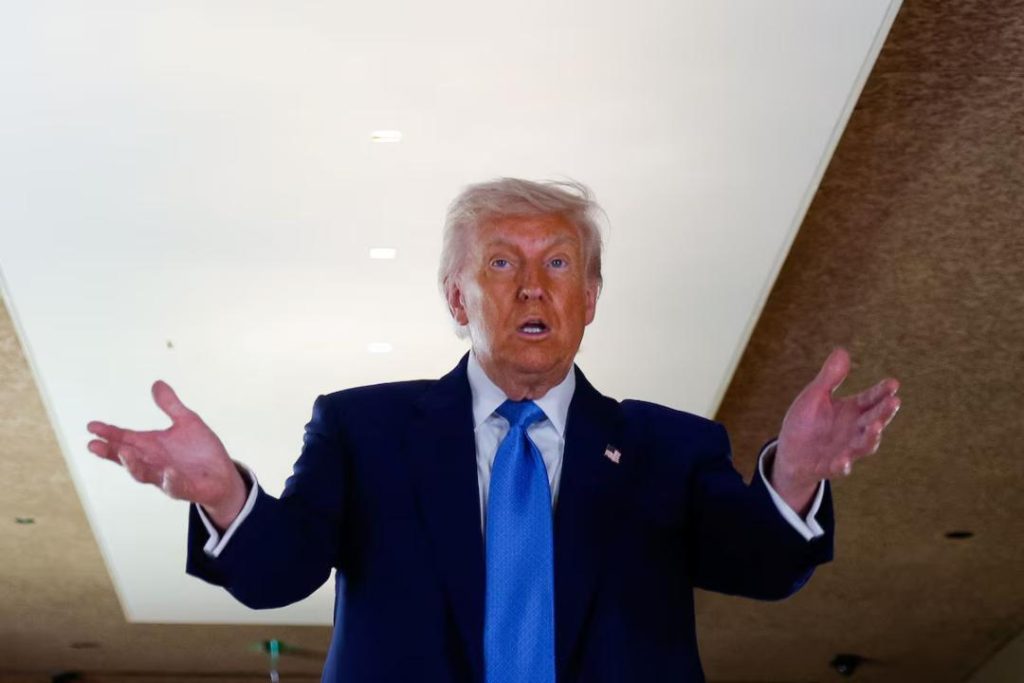
What is the Temporary Protected Status, which Trump is targeting?
In a recent move that has sparked widespread controversy, US President Donald Trump has announced plans to target the Temporary Protected Status (TPS) program, which has been a vital lifeline for thousands of individuals fleeing natural disasters, armed conflicts, and other extraordinary events. But what exactly is TPS, and why is it being targeted by the Trump administration?
To understand the TPS program, it’s essential to know its origins and purpose. Temporary Protected Status was first introduced in 1990 as a way to provide deportation relief and work permits to individuals who are already in the United States but cannot safely return to their home countries due to extraordinary circumstances. These circumstances can include natural disasters, armed conflicts, and other events that make it unsafe for people to return home.
Under the TPS program, individuals who are already in the US and meet specific eligibility requirements can be granted TPS status. This status allows them to stay in the country temporarily, work legally, and access essential services such as healthcare and education. However, it’s important to note that TPS does not lead to lawful permanent resident status or any other immigration status.
Currently, 17 countries have TPS designations, including El Salvador, Haiti, Honduras, Nepal, Nicaragua, Somalia, South Sudan, Syria, and Yemen, among others. The program has been used to provide relief to individuals who have been affected by a range of crises, from the 2010 earthquake in Haiti to the ongoing conflict in South Sudan.
So why is the Trump administration targeting TPS? The answer lies in the administration’s broader immigration policies and its efforts to reduce immigration and limit the number of people who can enter the US legally. In recent years, the administration has taken a series of steps to restrict access to immigration benefits, including limiting the number of refugees who can be resettled in the US and cracking down on undocumented immigration.
The targeting of TPS is part of this broader effort to reduce immigration and limit the number of people who can enter the US legally. The administration has argued that the program is no longer necessary, citing improvements in the countries that have been designated for TPS. However, critics argue that this is a flawed approach that ignores the ongoing crises in these countries and puts thousands of individuals at risk of deportation and separation from their families.
One of the most significant concerns about the Trump administration’s plans to target TPS is the impact it will have on families. Many individuals who have been granted TPS status have been living in the US for years, building lives and starting families. If they are deported, they will be forced to leave behind loved ones who are US citizens or have been born in the country.
The targeting of TPS also raises concerns about the administration’s priorities when it comes to immigration. While the administration has touted its efforts to improve border security and reduce undocumented immigration, it has also taken steps to restrict access to legal immigration benefits, including the TPS program.
In conclusion, the Temporary Protected Status program is a vital lifeline for thousands of individuals who are fleeing natural disasters, armed conflicts, and other extraordinary events. While it’s true that the program is intended to be temporary, the ongoing crises in many of the countries designated for TPS mean that it is still necessary to provide relief to those who are affected. The Trump administration’s plans to target TPS are part of a broader effort to restrict immigration and limit the number of people who can enter the US legally, but they are misguided and will have significant consequences for families and individuals who are already struggling to make their way in the world.



